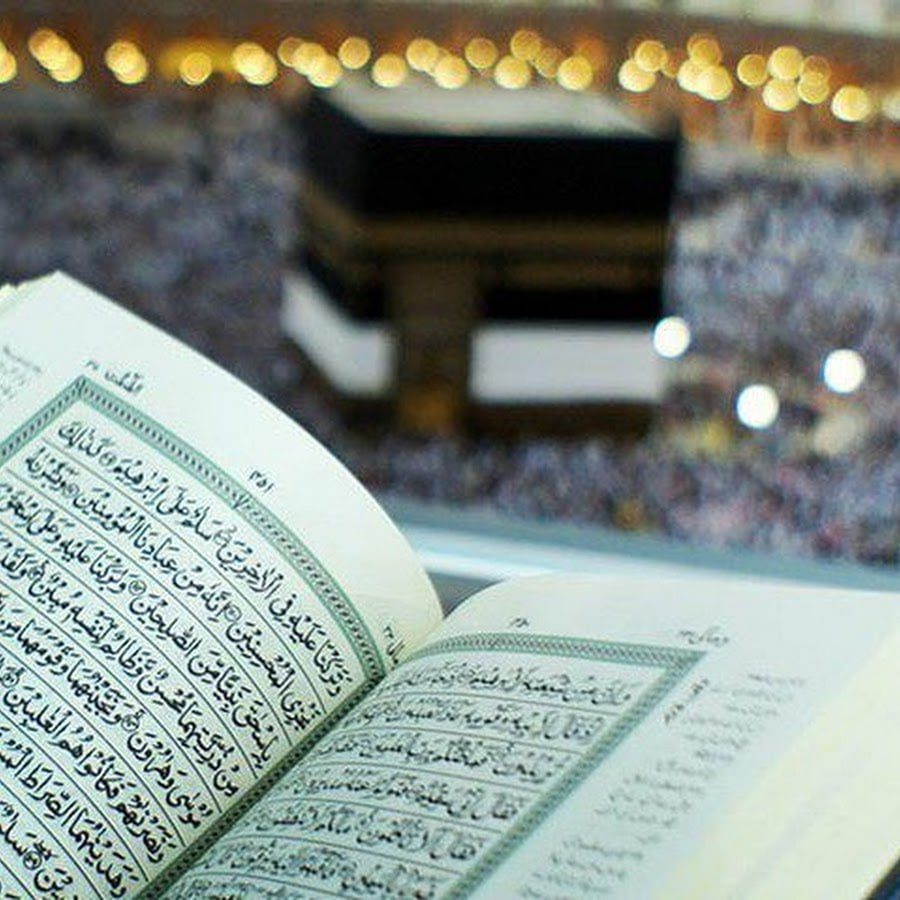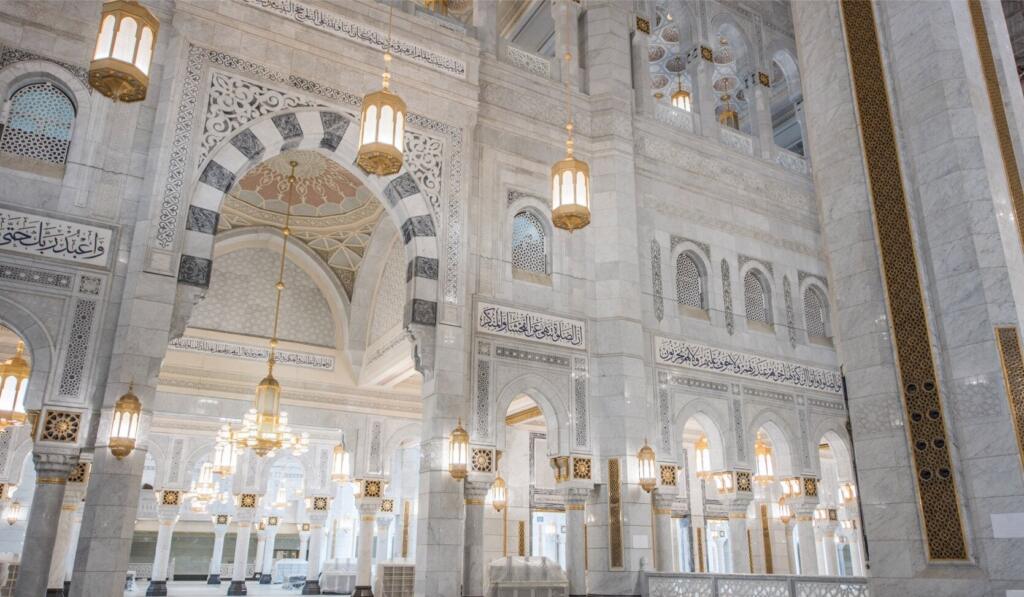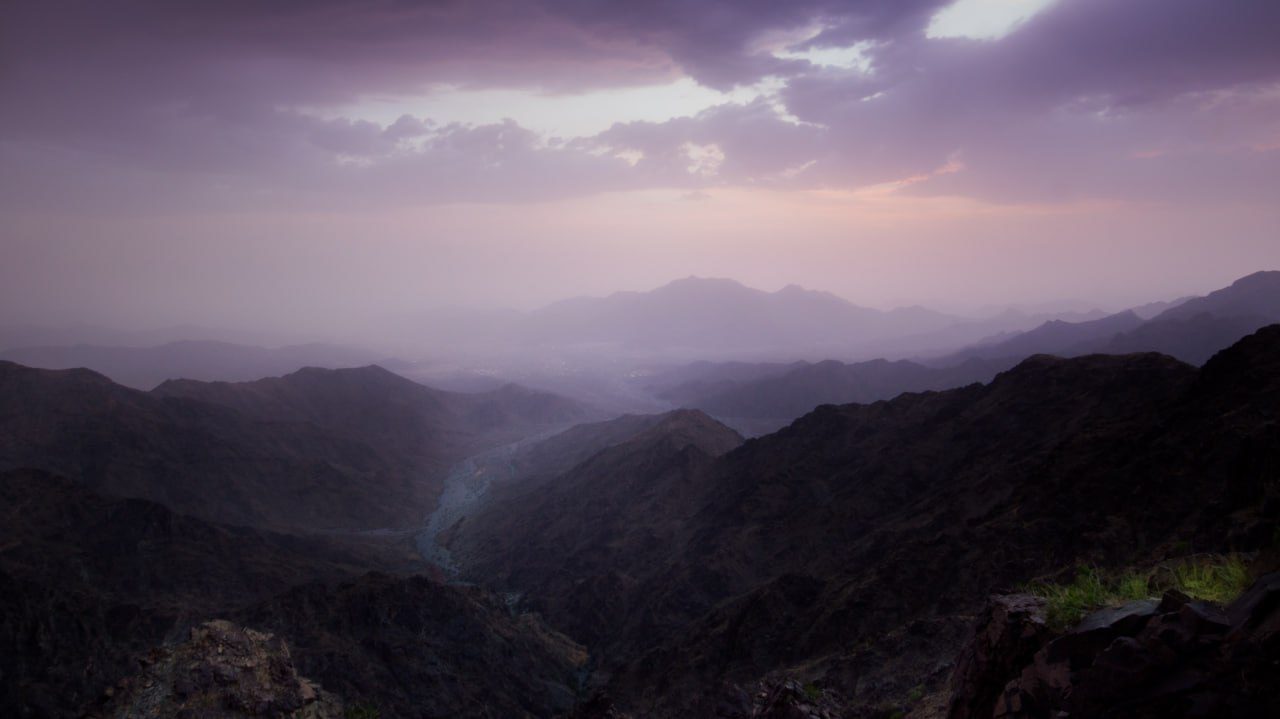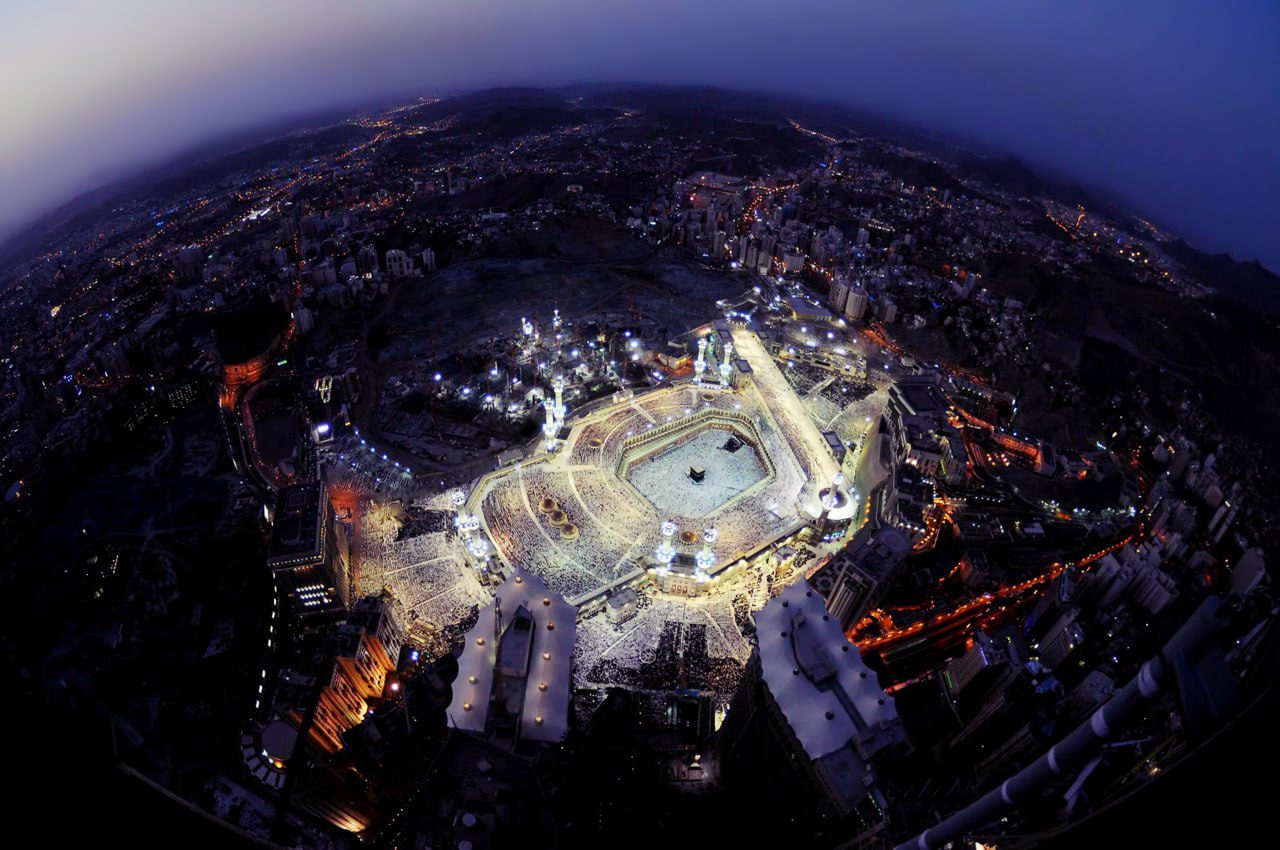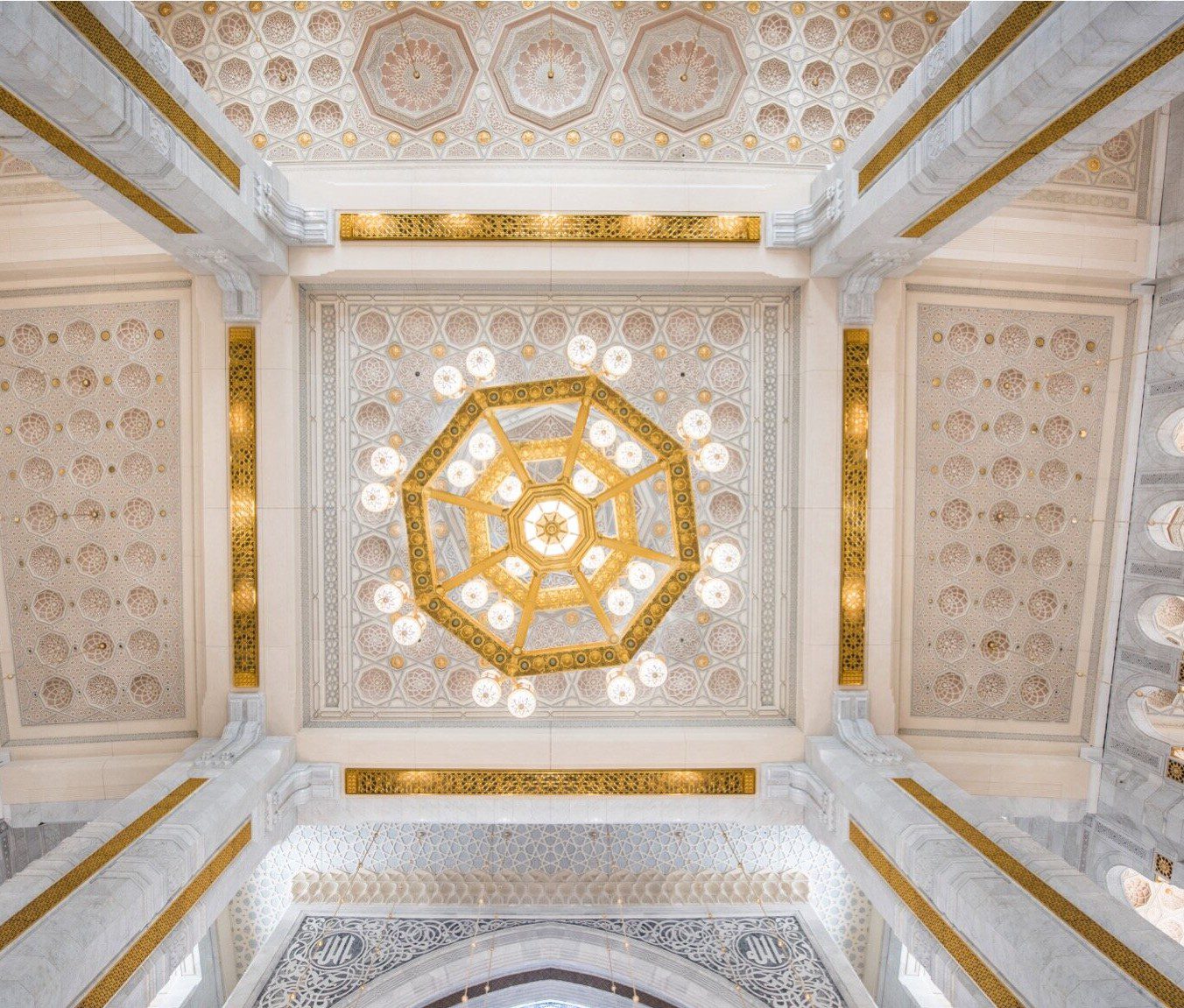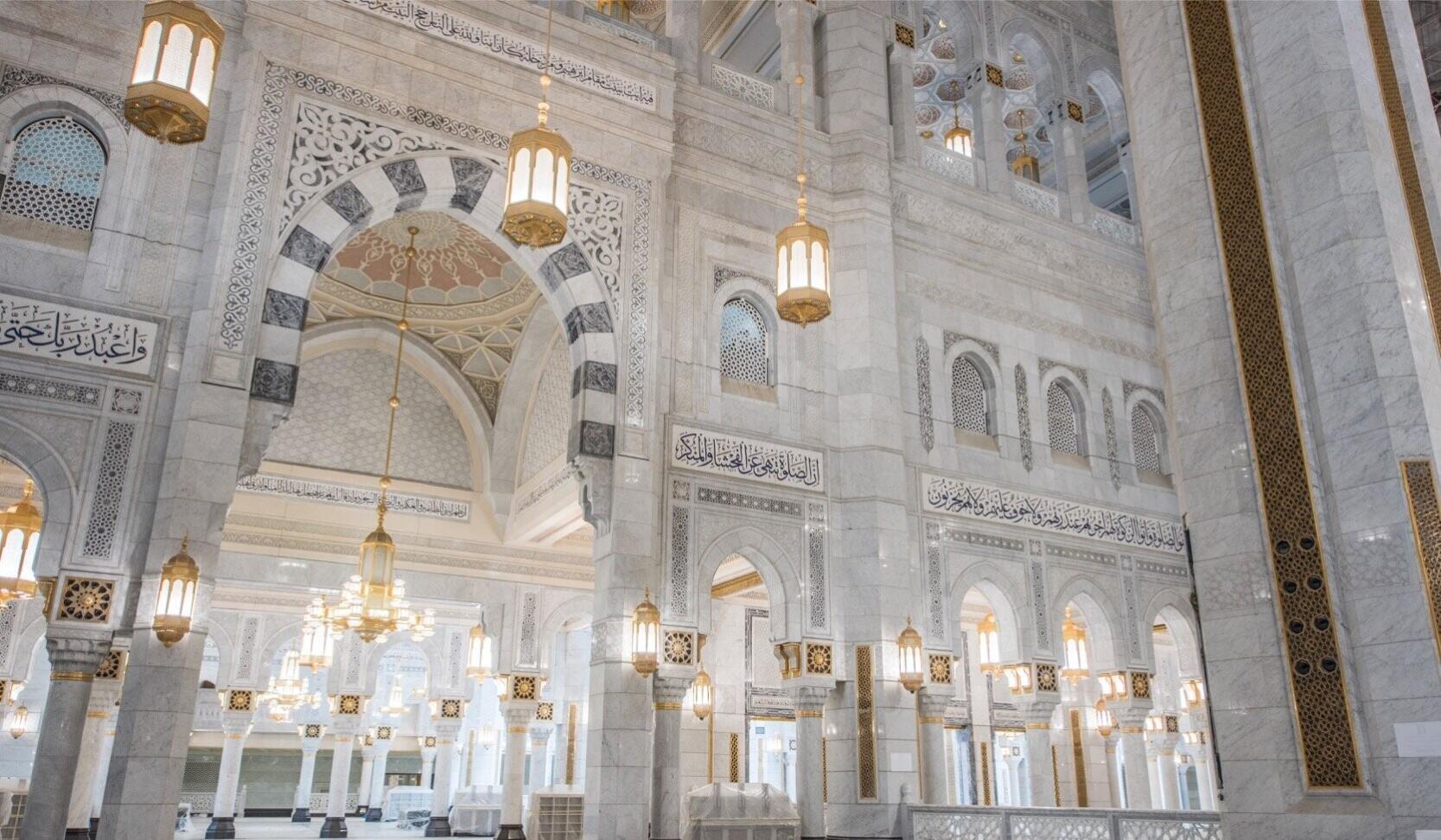Subtotal: £0.00
وَأَتِمُّوا الْحَجَّ وَالْعُمْرَةَ لِلّٰهِ فَإِنْ أُحْصِرْتُمْ فَمَا اسْتَيْسَرَ مِنَ الْهَدْىِ وَلَا تَحْلِقُوْا رُءُوْسَكُمْ حَتَّىٰ يَبْلُغَ الْهَدْىُ مَحِلَّهُۥ فَمَنْ كَانَ مِنْكُم مَّرِيْضًا أَوْ بِهِۦٓ أَذًى مِّن رَّأْسِهِۦ فَفِدْيَةٌ مِّنْ صِيَامٍ أَوْ صَدَقَةٍ أَوْ نُسُكٍ فَإِذَآ أَمِنْتُمْ فَمَنْ تَمَتَّعَ بِالْعُمْرَةِ إِلَى الْحَجِّ فَمَا اسْتَيْسَرَ مِنَ الْهَدْىِ فَمَنْ لَّمْ يَجِدْ فَصِيَامُ ثَلَـٰثَةِ أَيَّامٍ فِى الْحَجِّ وَسَبْعَةٍ إِذَا رَجَعْتُمْ تِلْكَ عَشَرَةٌ كَامِلَةٌ ذَٰلِكَ لِمَنْ لَّمْ يَكُنْ أَهْلُهُۥ حَاضِرِى الْمَسْجِدِ الْحَرَامِ وَاتَّقُوا اللهَ وَاعْلَمُوٓا أَنَّ اللهَ شَدِيْدُ الْعِقَابِ
Complete ḥajj and ʿumrah for Allah. But if you are prevented (from proceeding), then (sacrifice) whatever animal of offering is available. And do not shave your heads until the sacrificial animal reaches its destination. But if any of you is ill or has a scalp ailment (requiring shaving), then compensate either by fasting, charity, or a sacrificial offering. In times of peace, anyone wishing to combine ḥajj and ʿumrah shall make the sacrificial offering they can afford. Whoever cannot afford that (offering), let them fast three days during pilgrimage and seven after returning — completing ten. These are for those who do not live near the Sacred House. And be mindful of Allah, and know that Allah is severe in punishment. (2:196)
وَأَتِمُّوا الْحَجَّ وَالْعُمْرَةَ لِلّٰهِ
Complete ḥajj and ʿumrah for Allah
– This āyah reiterates the importance of ikhlāṣ (sincerity). From the beginning, it is important to set the correct intention.
Act: Do ḥajj for the pleasure of Allah Alone.
Reflect: How did the Prophet ﷺ set his intention for ḥajj?
صَدَقَةٍ
charity
– Even in compensating for missing out on actions of ḥajj, there is special attention given to feeding the poor. In Sūrah al-Ḥajj, Allah ﷻ says: وَأَطْعِمُوا۟ ٱلْقَانِعَ وَٱلْمُعْتَرَّ [and feed those who do not ask, as well as those who do] and وَأَطْعِمُوا۟ ٱلْبَآئِسَ ٱلْفَقِيرَ [and feed the distressed, the poor]
Act: Whilst in ḥajj, give sadaqah (even if just one riyal) daily to the poor and needy.
وَاتَّقُوا اللهَ وَاعْلَمُوٓا أَنَّ اللهَ شَدِيْدُ الْعِقَابِ
And be mindful of Allah, and know that Allah is severe in punishment.
- Knowing that the punishment is severe pushes you to act on the commandments of Allah and be mindful of Him (taqwā).
- ‘And know’: Knowledge leads to taqwā.
- Outward legal rulings (fiqh) in the Qur’ān are connected with inner spiritual meanings.
- When legal rulings are mentioned in the Qur’ān, they are often paired with encouragement (targhīb) and warnings (tarhīb), to make it easier for you to act upon them and to nurture sincerity.
Act: Seek beneficial knowledge with the intention of strengthening your taqwā.
اَلْحَجُّ أَشْهُرٌ مَّعْلُومَـٰتٌ فَمَنْ فَرَضَ فِيْهِنَّ الْحَجَّ فَلَا رَفَثَ وَلَا فُسُوْقَ وَلَا جِدَالَ فِى الْحَجِّ وَمَا تَفْعَلُوْا مِنْ خَيْرٍ يَّعْلَمْهُ اللهُ وَتَزَوَّدُوْا فَإِنَّ خَيْرَ الزَّادِ التَّقْوَىٰ وَاتَّقُوْنِ يَـٰٓأُولِى الْأَلْبَـٰبِ
Ḥajj is (to be performed) in the appointed months. Whoever commits to (performing) ḥajj, let them stay away from intimate relations, sins, and arguments during ḥajj. Whatever good you do, Allah knows of it. Take provisions (for the journey) — surely the best provision is taqwā (mindfulness of Allah and piety). And be mindful of Me, O people of understanding! (2:197)
فَلَا رَفَثَ وَلَا فُسُوْقَ وَلَا جِدَالَ فِى الْحَجِّ
let them stay away from intimate relations, sins, and arguments during ḥajj
- The pilgrim is commanded to guard their limbs and senses from the unlawful. Remembering that you are a guest of Allah will help you do this. ِAs a guest, you should respect the boundaries of your Host and honour Him, and the best way to do this is through taqwā.
- This mindfulness and vigilance should carry over into your everyday life once you return.
Reflect: How mindful are you of your daily speech? How might ḥajj help you develop greater self-control over your words? Which other pillar of Islam does this remind you of?
Reflect: What do you think is one of the wisdoms behind the prohibition of intimate relations during ḥajj — something that is usually ḥalāl?
جِدَالَ
arguments
- With the massive crowds, tight space, and the diversity of people, tensions can easily arise, and arguments may flare up. However, arguments breed enmity, damage the sanctity of ḥajj, and undermine its very purpose: to humble yourself before Allah.
- Allah is reminding you to control yourself. Protect the ties of brotherhood as you are one ummah!
Reflect: How will you respond if someone provokes you? How will you make sure you don’t provoke others?
وَمَا تَفْعَلُوْا مِنْ خَيْرٍ يَّعْلَمْهُ اللهُ
Whatever good you do
- This is a reminder to do as much good as possible throughout your entire ḥajj.
- Secret acts of worship are among the best ways to cultivate ikhlāṣ (وَأَتِمُّوا۟ ٱلْحَجَّ وَٱلْعُمْرَةَ لِلَّهِ). As most acts of worship in ḥajj are performed in public, seek opportunities to engage in secret acts of worship, such as extra prayers, recitation, dhikr, helping someone, teaching someone, etc.
- No small deed or sin is hidden from Allah; everything is recorded and will be recompensed.
Act: What secret good deeds will you incorporate into your ḥajj?
وَتَزَوَّدُوْا فَإِنَّ خَيْرَ الزَّادِ التَّقْوَىٰ
Take provisions (for the journey) — surely the best provision is taqwā (mindfulness of Allah and piety)
- The focus here moves from the physical to the spiritual.
- Ibn al-Qayyim (raḥimahullāh) writes, “The pilgrims were instructed to take provision for their journey and not to travel without it. Then Allah draws their attention to the provision for the journey to the hereafter, which is taqwā. Just as a traveller cannot reach his destination without physical provision, the one journeying to Allah and the hereafter cannot reach his destination without the provision of taqwā. Thus, both outward and inward provisions are mentioned: the physical and the spiritual.”
وَاتَّقُوْنِ يَـٰٓأُولِى الْأَلْبَـٰبِ
And be mindful of Me, O people of understanding
Those with the most perfect understanding and intellect (ulul-albāb) are the ones with the most taqwā.
لَيْسَ عَلَيْكُمْ جُنَاحٌ أَنْ تَبْتَغُوْا فَضْلًا مِّن رَّبِّكُمْ فَإِذَآ أَفَضْتُمْ مِّنْ عَرَفَـٰتٍ فَاذْكُرُوا اللهَ عِنْدَ الْمَشْعَرِ الْحَرَامِ وَاذْكُرُوْهُ كَمَا هَدَىٰكُمْ وَإِنْ كُنْتُمْ مِّنْ قَبْلِهِۦ لَمِنَ الضَّآلِّيْنَ
There is no blame on you for seeking the bounty of your Lord (by trading). When you surge down from ʿArafāt, remember Allah near al-Mashʿar al-Ḥarām (the sacred place) and remember Him, as He has guided you, for surely before it, you were among the astray. (2:198)
فَضْلًا مِّن رَّبِّكُمْ
bounty of your Lord
In this āyah, ḥalāl earnings are attributed to Allah ﷻ. This serves as a reminder to not attribute your earnings or success to your own expertise or efforts. Rather, everything comes from the grace and bounty of Allah.
Reflect: Do you truly believe your provision, wealth or money comes from Allah? For example, when you get your monthly paycheck, do you believe it comes from your employer or from Allah? Do your actions reflect this belief?
وَاذْكُرُوْهُ كَمَا هَدَىٰكُمْ
and remember Him, as He has guided you
- Dhikr is one of the primary goals of ḥajj.
- Allah ﷻ reminds you of the importance of thanking Him for the greatest gift He has given to you: guidance.
Reflect: How often do you thank Allah for blessing you with guidance?
ثُمَّ أَفِيْضُوْا مِنْ حَيْثُ أَفَاضَ النَّاسُ وَاسْتَغْفِرُوا اللهَ إِنَّ اللهَ غَفُوْرٌ رَّحِيْمٌ
Then go forth with the rest of the pilgrims, and seek Allah’s forgiveness. Indeed Allah is All-Forgiving, Most Merciful. (2:199)
- Throughout your ḥajj, always seek forgiveness and ask Allah through His Names: al-Ghafūr and al-Raḥīm.
- Seeking forgiveness in noble places and whilst doing noble deeds prevents ʿujb (self-admiration) and atones for your deficiencies.
فَإِذَا قَضَيْتُمْ مَّنَـٰسِكَكُمْ فَاذْكُرُوا اللهَ كَذِكْرِكُمْ اٰبَآءَكُمْ أَوْ أَشَدَّ ذِكْرًا فَمِنَ النَّاسِ مَنْ يَّقُوْلُ رَبَّنَآ اٰتِنَا فِى الدُّنْيَا وَمَا لَهُۥ فِي الْآخِرَةِ مِنْ خَلَـٰقٍ
When you have fulfilled your sacred rites, remember Allah as you used to remember your forefathers, or even more. There are some who say, “Our Lord! Grant us good in this world,” but they will have no share in the hereafter. (2:200)
فَاذْكُرُوا اللهَ
remember Allah
There is an incredible emphasis on the remembrance of Allah in the rites of ḥajj.
- This āyah condemns those who limit their supplications to worldly needs. Ibn ʿAbbās (raḍiy Allāhu ʿanhu) said that some of the bedouins would come to ʿArafah and pray for rain, and for abundance in cattle and crops for the upcoming year, but they would make no mention of the hereafter.
Reflect: Reflect: Do you only turn to Allah and beg Him when you have a worldly need or problem?
وَمِنْهُمْ مَّنْ يَّقُوْلُ رَبَّنَآ اٰتِنَا فِى الدُّنْيَا حَسَنَةً وَّفِي الْآخِرَةِ حَسَنَةً وَّقِنَا عَذَابَ النَّارِ
Yet there are others who say, “Our Lord! Grant us good in this world and good in the hereafter, and protect us from the torment of the Fire.” (2:201)
- This is a very comprehensive duʿā’, which is why it was frequently repeated by the Messenger of Allah ﷺ.
- You are not specifying the ‘good’, but asking Allah for what He considers to be ‘good’ for you; showing your contentment with whatever He chooses for you.
- Your duʿā’ should not be limited to worldly matters; rather, the greater focus should be the hereafter. Notice that this duʿā’ has three parts: one for this world, and two for the hereafter.
- Along with dhikr, duʿā’ is a central part of ḥajj.
رَبَّنَآ اٰتِنَا فِى الدُّنْيَا حَسَنَةً
Grant us good in this world
- This includes good health, a spacious home, a good spouse, abundant sustenance, beneficial knowledge, righteous actions, a comfortable vehicle, blessings, wellbeing, etc.
وَّفِي الْآخِرَةِ حَسَنَةً
and good in the hereafter
- This includes Jannah, safety from the terrors of the Day of Judgement, easy reckoning, and the pleasure of seeing Allah.
وَّقِنَا عَذَابَ النَّارِ
Protect us from the torment of the Fire
- This includes Hell-fire and everything that leads to it: sins, doubtful actions, and forbidden actions.
Reflect: When is it sunnah to recite this duʿā’ in ḥajj?
أُولَـٰٓئِكَ لَهُمْ نَصِيبٌ مِّمَّا كَسَبُوا وَاللّٰهُ سَرِيْعُ الْحِسَابِ
It is they who will receive a (heavenly) reward for the good they have done. And Allah is swift in reckoning. (2:202)
- All your efforts to do good will not be in vain.
- Allah is swift in reckoning, so be mindful of your actions.
وَاذْكُرُوا اللهَ فِىٓ أَيَّامٍ مَّعْدُوْدَٰتٍ فَمَنْ تَعَجَّلَ فِىْ يَوْمَيْنِ فَلَآ إِثْمَ عَلَيْهِ وَمَنْ تَأَخَّرَ فَلَآ إِثْمَ عَلَيْهِ لِمَنِ اتَّقَىٰ وَاتَّقُوا اللهَ وَاعْلَمُوٓا أَنَّكُمْ إِلَيْهِ تُحْشَرُوْنَ
And remember Allah on the appointed days. Whoever departs swiftly on the second day is not sinful, neither are those who stay behind (till the third), so long as they are mindful (of Allah). And be mindful of Allah, and know that you will be gathered before Him. (2:203)
أَيَّامٍ مَّعْدُودَٰتٍ
the appointed days
- The days of ḥajj are very limited so make the most of them. This is also alluded to in أَشْهُرٌ مَّعْلُومَـٰتٌ [the appointed months] in 2:197 and أَيَّامٍ مَّعْلُومَـٰتٍ [appointed days] in 22:28.
- Ḥajj should instil in you a deep appreciation for time which is a finite resource and your most valuable asset.
- These days refer to the Days of Tashrīq. The Messenger of Allah ﷺ said, “The Days of Tashrīq are the days of eating, drinking and the remembrance of Allah” (Muslim).
لِمَنِ اتَّقَىٰ
so long as they are mindful of Allah
Ibn Masʿūd (raḍiy Allāhu ʿanhu) said: “Forgiveness of sins is only for the one who observes taqwā during ḥajj.”
وَاتَّقُوا اللهَ وَاعْلَمُوٓا أَنَّكُمْ إِلَيْهِ تُحْشَرُونَ
And be mindful of Allah, and know that you will be gathered before Him
- Always be mindful of your ultimate destination and your journey to the hereafter.
- Knowing that you will be held accountable is one of the most important ways to attain taqwā.
- This set of verses ends with the mention of the hereafter. Sūrah al-Ḥajj also begins with the mention of the hereafter: zalzalah as-sāʿah (the quake of the Hour) and throughout ḥajj, there are powerful reminders of the journey to the hereafter.

 Daily Adhkar Summary (A6)
Daily Adhkar Summary (A6) 